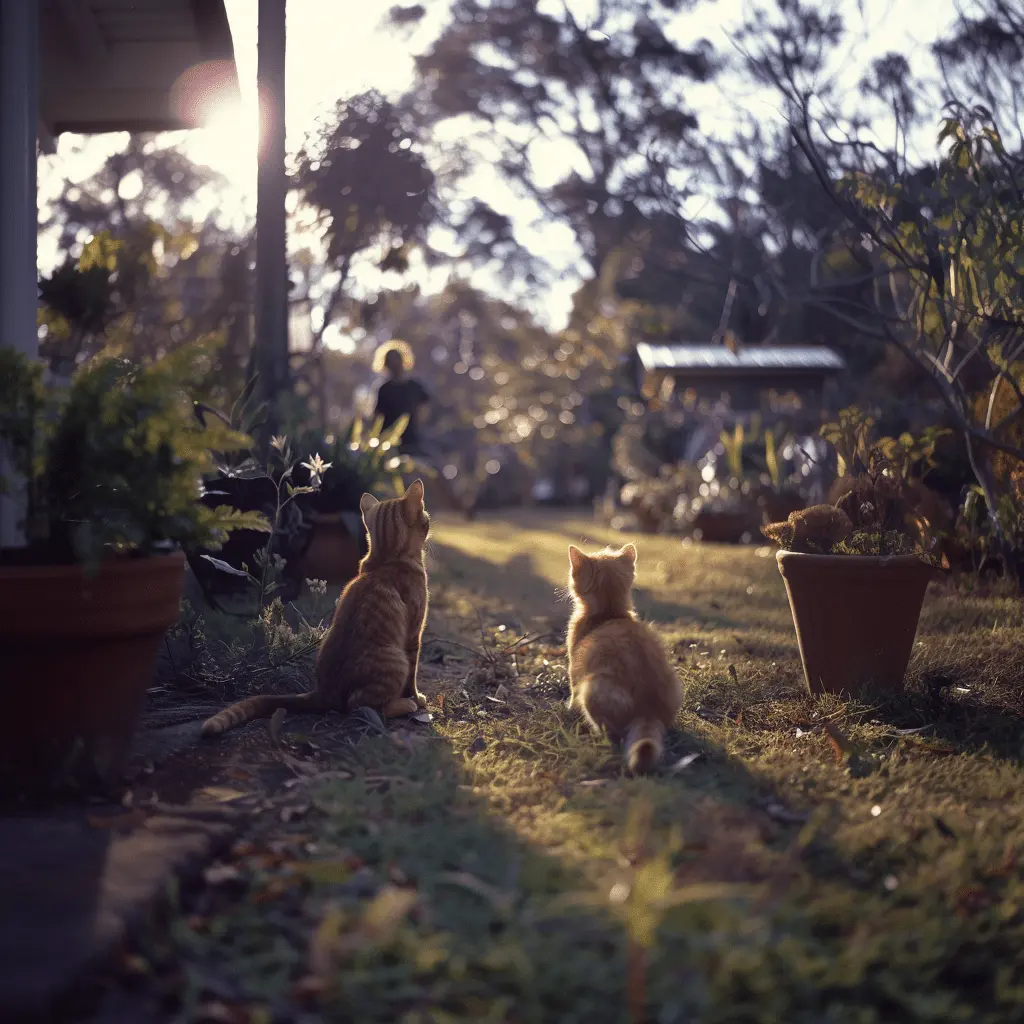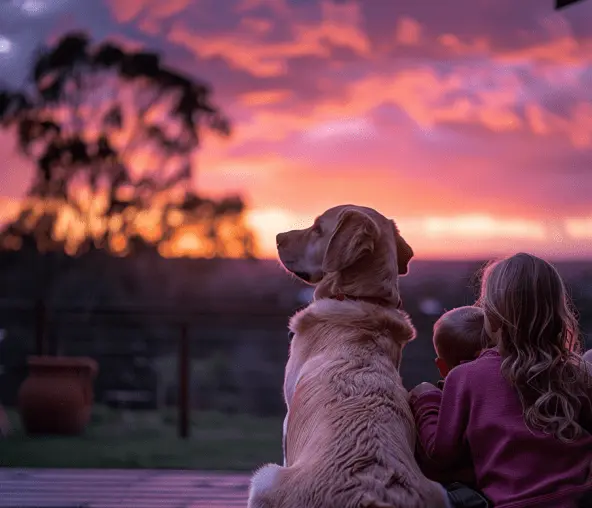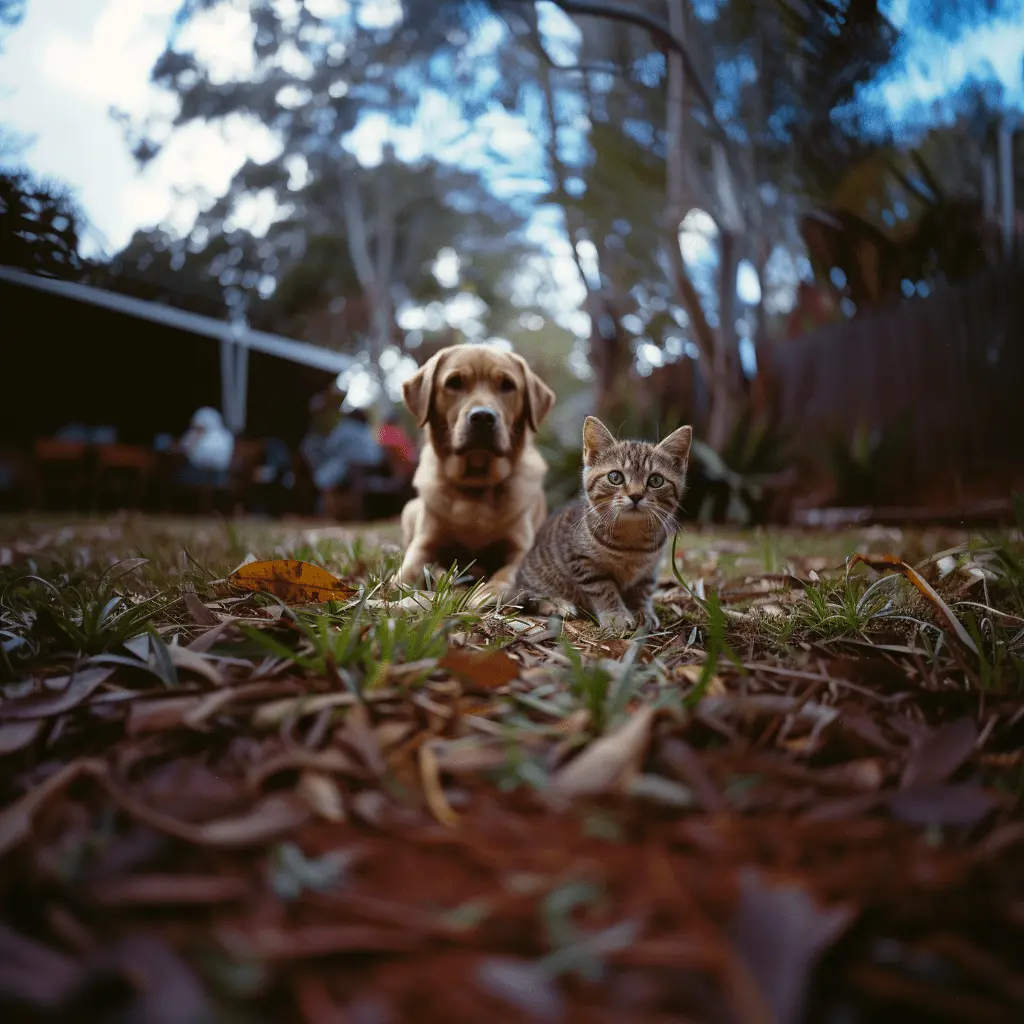No matter how much anyone wants their pets to stay in their lives, sending these furry creatures to pet heaven is just something to be ready for. It will be a deeply personal and profound journey, as the bond shared with any pet is unique and the void left by their passing can be immense.
You do not have to be alone, though. There are various experiences and anecdotes that can help you navigate the difficult path of grief and healing after losing a pet.

Understanding the impact of losing a pet
The grief experienced after losing a pet is as real and often as intense as the grief felt when losing a human loved one. It will never be easy to lose a furry friend, family member, confidant, and a source of unconditional love and companionship. Their loss can trigger a wide range of emotions, from deep sadness and loneliness, and sometimes, even guilt and anger. It’s important to acknowledge these feelings and understand that grieving the loss of a pet is a natural and necessary process.
9 things to do after the death of a pet
1. Handle immediate aftercare thoughtfully
While it is perfectly normal to be overwhelmed by grief after losing a pet, you will still need to face practical decisions in the immediate aftermath of a pet’s death.
Whether you already have a choice in mind, or you prefer to not think about it until necessary, one of the major decision points is choosing between cremation and burial. Contact your local veterinarian or a vet clinic and they will explain to you these options.
Cremation can be private, where the pet is cremated alone and the ashes are returned to the owner. It can also be communal, where the pet is cremated with other pets and the ashes are not returned.
You can have your pet’s burial in a pet cemetery or, when laws allow in Australia, on private property.
These choices are deeply personal, and should reflect not only the pet owner’s preference and emotional needs, but also practical considerations.
2. Celebrate your pet’s life
Surely, there are tons of memories shared between pets and their owners, and these can be honoured through a personalised memorial.
Memorials can take many forms, from physical objects such as urns or garden stones to more ephemeral tributes like online memorial pages, it all depends on how you would want to honour your precious pet.
Some of us find comfort in commissioning custom artwork or jewellery that incorporates the pet’s ashes. Others opt to plant a tree or garden in memory of their pet, creating a living tribute that grows over time, making them feel like their pet is still with them somehow.
The act of creating a memorial can be cathartic, helping us to process their grief and celebrate the life of their pet.
3. Settle financial aspects
Saving up for pet emergencies can alleviate financial stress during a time of grieving, but unforeseen expenses can still add to the pain in an entirely different kind of way.
The cost of end-of-life care, including euthanasia, cremation, and burial, can be significant, especially if completely unexpected. But these costs need to be faced, and settling any outstanding veterinary bills promptly and understanding pet insurance are vital to avoid possible complications in the future.
4. Rearrange your space
The absence of tiny footsteps – and even fur – can leave a tangible void in a home. But if you feel the urge to gradually move on from your loss, rearranging furniture at home or altering the pet’s living area can help in coping with this absence.
Deciding when to remove or store away the pet’s belongings is entirely a different decision, but there is definitely no rush. Some may find it helpful to do this immediately, while others may need more time. Move at your own pace, as long as you are in a space that acknowledges the loss while also providing room for healing.
Keep in mind that rearranging your space might be a sudden change for the pets who are still in your care. Taking away the belongings of your pet that passed might not help your pets to grieve.
5. Look after your other pets
Animals experience grief and understand the concept of death. Losing a fellow pet may be as painful for them as it is for us.
Monitor your pets to see how they are coping. Grieving animals may have a loss of appetite and interest in their usual routine, and show signs of withdrawal, depression, or anxiety. It is important that your veterinarian is aware to be able to give proper advice on how to help your pets cope with the loss of another pet.

6. Seek emotional support
The important people in your lives have surely met your pet, and they will also share the grief with you. Your journey to healing should not be walked alone. Seeking support from friends, family, or pet loss support groups can provide just the right amount of comfort and understanding you need. Professional counselling may also be beneficial, especially for those struggling to accept the situation and process their grief.
For those pet owners who prefer to be by themselves, engaging in self-care practices, such as writing, meditation, or spending time with nature, can also aid in the healing process.
7. Preserve memories
For many, finding ways to honour their pet’s memory in the long run is an important part of the healing process. This helps them get used to the feeling of not having their pets physically, but not forgetting how their presence felt like.
This might include annual events to celebrate their birthday, a walk in their favourite park, or even charitable acts of donating to animal shelters in their name. These tributes can provide ongoing comfort and serve as reminders of the positive impact the pet had on their owner’s life.
8. Heal together
Sharing stories and memories of a pet with others who knew and loved them can incredibly contribute to healing. Whether through formal annual celebrations or over casual gatherings, coming together to honour the pet’s life allows for a shared expression of grief and remembrance.
Online forums and social media groups can offer a space to share memories and connect with others who can relate to the experience of losing a pet.
9. Open your heart when it is time
Healing from the loss of a loved one takes time and patience, and the same goes with losing a pet. While it can be extremely challenging, it is important to fully experience the grief process, moving through it at one’s own pace.
In time, you may feel ready to consider opening your home and heart to another pet– but don’t adopt unless you’re certain. Remember that adopting a new pet is not about replacing the one you lost. Rather, it is about extending the love and care that defined the previous relationship to another animal in need.

Navigating forward with pet care
Losing a pet can be one of the saddest events in one’s life, but we can always stand back up. Through thoughtful aftercare, creating memorials, seeking support, and eventually finding ways to honour their memory, we can navigate the difficult path of grief.
As we look back, we remember the love and care we provided for our pets who have passed. It encourages us to take proactive steps in safeguarding the health and happiness of pets who are still in our care– a commitment that Knose Pet Insurance understands and shares. And while the pain of loss may never fully disappear, it can be transformed into a lasting legacy of love and memories that endure.
Related articles to pet wellness:
- How to care for our senior pets
- Specialised therapies for aggressive and anxious dogs
- Caring for senior cats
- Why is pet insurance important?
—
Post by Yvette Balita in collaboration with Knose Pet Insurance
Yvette Balita is a fur parent to Shinx, a 6-year old Jack Russel, along with multiple cats, and even chickens! Growing up with all kinds of farm animals in her neighbourhood, she takes pride in coming up with unique pet names. The animals around her also give her a grounded perspective on the natural cycle of pet life and pets’ needs. Drawing from her personal journey and hands-on experience as a pet owner, Yvette contributes insights for pet owners seeking to care and protect their furry family members.


